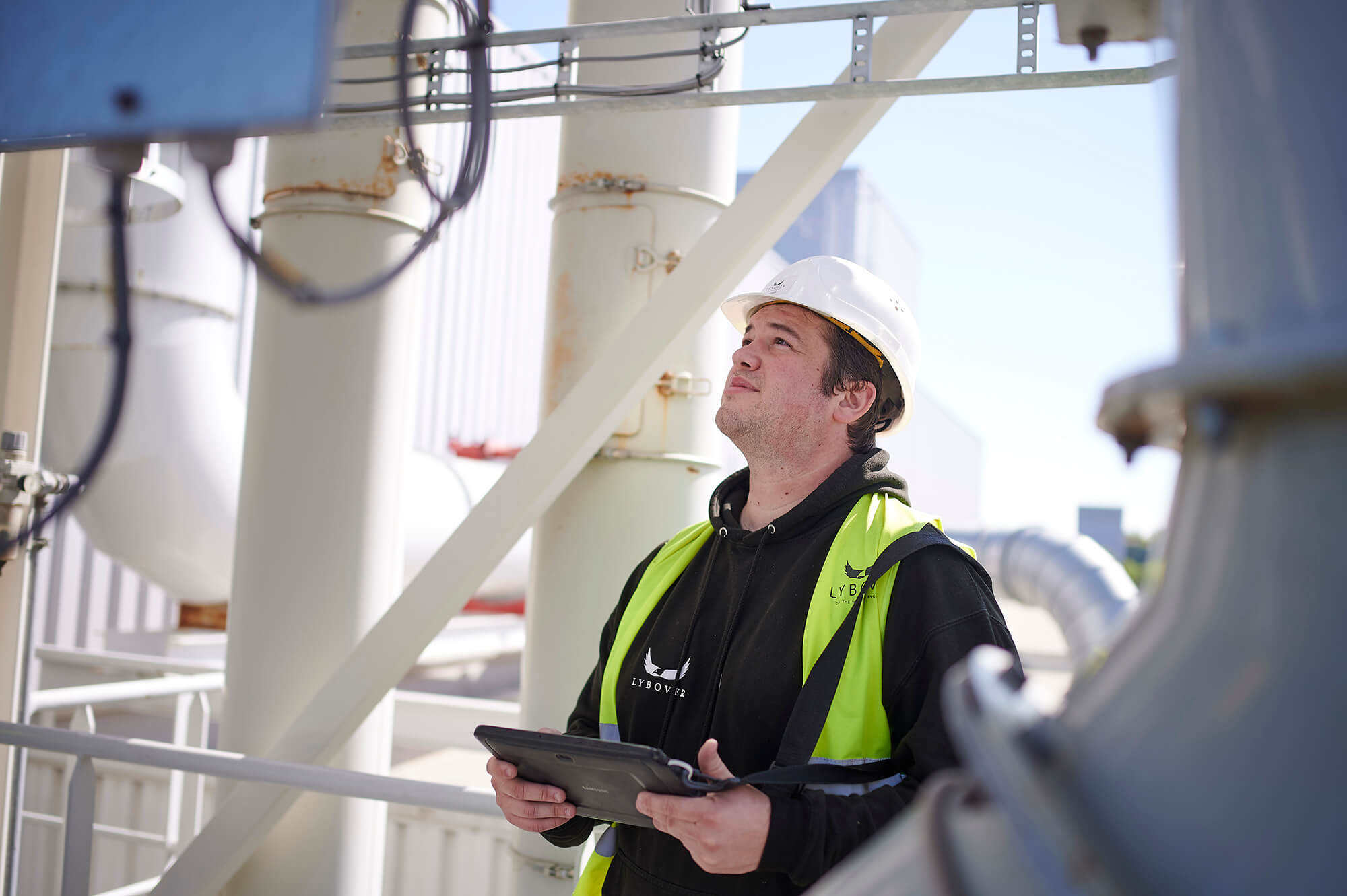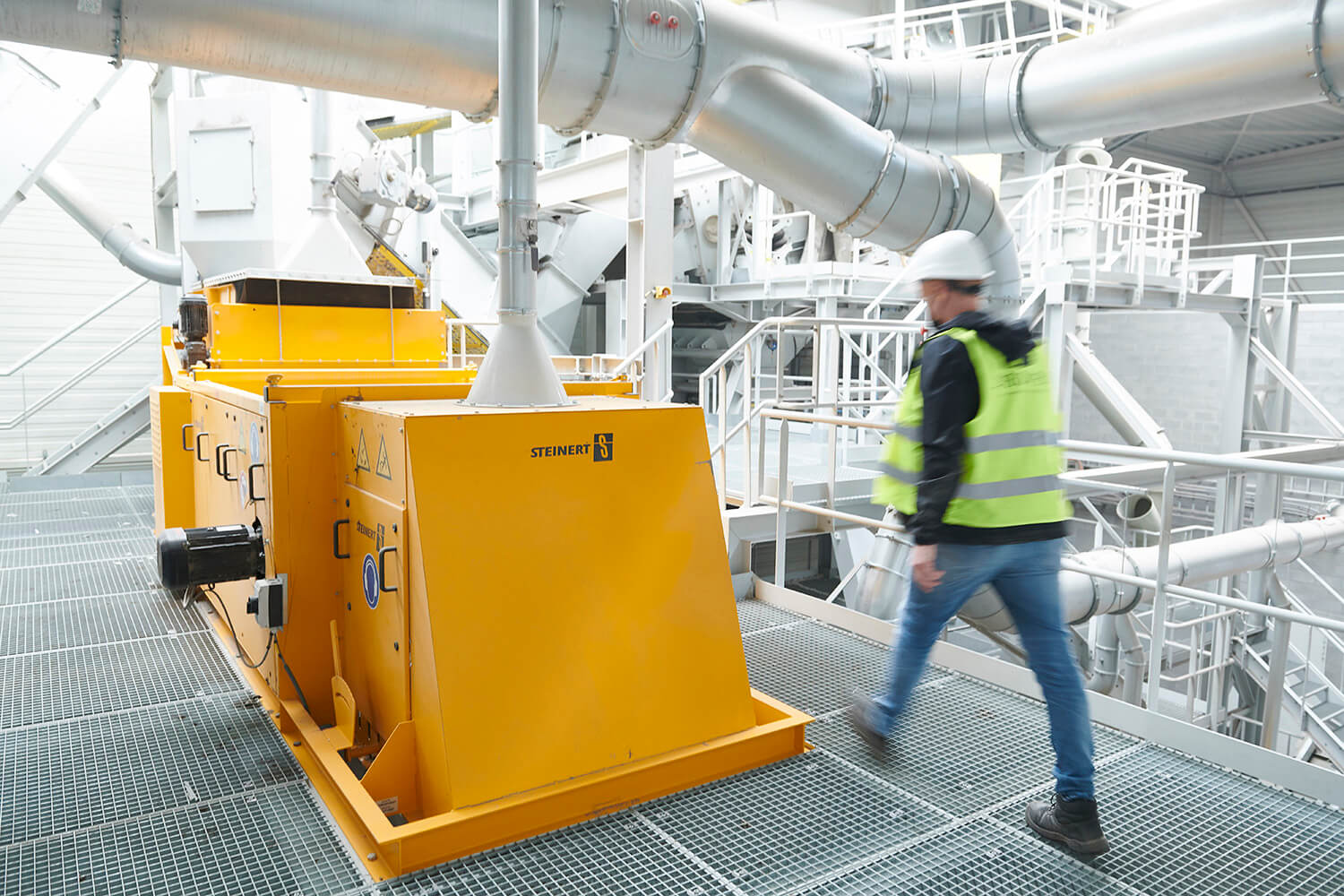Deceuninck, based in West Flanders, is a world player in the field of plastic window and door profiles. With more than 3,800 employees and production sites in fifteen countries, the company realises a turnover of almost 700 million euros.
Based on its wide expertise Lybover provided the recycling line, steel structure and the dust extraction and filtration.
The economy of tomorrow will be circular, but at Deceuninck they already started taking some important steps yesterday. The old recycling line in Diksmuide had a capacity of 10,000 tonnes. That volume had to be seriously increased. Capacity, quality or purity and efficiency were key concepts in the construction of the new installation. And Lybover RECYCLING appeared to be the perfect partner.
“The customer’s ambitions were sky-high, so the challenge was very big for us,” explains Lars van Volsem, Sales Engineer at Lybover RECYCLING. “
Towering ambitions
Lars Van Volsem: “The ambitions in terms of tonnage, efficiency and purity were not insignificant, indeed. Moreover, we wanted to keep the old installation running all the time, while the new one was being built. For this project – a world first of its kind – Lybover brought the right mix of high-tech machinery and in-house engineering expertise. Our global vision and project approach made the difference here. The openness and trust on both sides were very high, which is necessary when you work together so intensively on time and project management.”
This open and transparent cooperation bore fruit very quickly: the construction of the new recycling centre started in spring 2018 and less than nine months later, the facility was already operational. And yet Deceuninck and Lybover were anything but hasty. The structured and well thought-out recycling process is made up of ten steps.
The end result is an integrated construction in which everything starts with a large crushing plant that reduces the material to be recycled to fractions of 30 to 50 cm. After an initial metal sorting, a hammer mill further fragments the material. A complex series of separation techniques then isolates the plastics, foil, metals, glass, rubbers, silicones and glass fibres from the PVC. The dust that is released in the process is carefully filtered.

“Literally every step of the process is subjected to thorough quality control”
After another wet and dry grinding only fractions of a few millimetres remain. In a final stage, the material is sorted according to colour and granulated or micronised. Literally every step of the overall process is subject to careful quality control.
The results-in-figures of this partnership between Deceuninck and Lybover are nothing short of impressive. The new recycling line has a capacity of 45.000 tonnes per year – almost five times more than the previous line. More than 2.3 million windows are recycled in this way every year. The recycling process converts waste material into high-quality raw material, using up to 90% less energy than is needed to produce new raw material for PVC windows.
